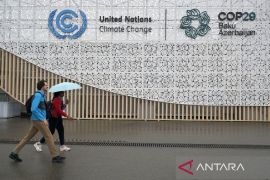This year India became the President of the G20. The South Asian country wants to strengthen its reputation in the field of technology, including startups. Thus, this year India established Startup20, a forum that aims to revitalize newly built companies, as well as focus on investment. This forum agreed to focus on joint investment with the value reaching USD 1 Trillion or equivalent to IDR 15 Thousand Trillion. Startup20, is also a place to exchange information for technology-based companies, and showcase their impact through the innovations provided.
Indonesia’s edtech company Cakap, became one of the country representatives at Startup20, which became part of the series ahead of the G20 Summit. In the Spotlight Talks session, Yohan Limerta, Chief Technology Officer (CTO) & Co-founder of Cakap, shared a success story of how Cakap was able to answer global challenges in the form of equitable distribution of quality education through technology, as well as a solution to prepare ready-to-work talent with various practical skills. Yohan emphasized that as an archipelagic country, the quality of human resources in Indonesia is uneven because of different access to education in each region. This is the challenge that must be answered by edtech platforms such as Cakap.
"We were a company that barely had more than 100 students in our first year, and now we have more than 3 million students all over Indonesia, and become a home of more than 2,000 teachers globally," stated Yohan in front of around 500 Startup20 participants earlier this month. Yohan added that a number of countries often face the same problem, especially the demand for skilled workers is high but not balanced with adequate availability.
In 2030 -or less than seven years from now- the need for skilled workers in Indonesia will reach 113 million people (McKinsey Global Institute). Meanwhile, only about half of that has been fulfilled, or 58 million (Kemenperin, 2018). "As a Startup20 delegation from Indonesia, we realize that Edtech's full potential requires collective effort and collaboration. The G20 can play an important role in encouraging international cooperation, sharing best practices, and promoting a policy framework that supports edtech integration and attracts more investment,” concluded Yohan.
During its four year run, Cakap intensively carried out foreign language learning to vocational training through online platforms, to fulfill the high demand for skilled workers, not only in Indonesia or Southeast Asia or Asia regions, but globally. Based on the Cakap Impact Report 2022, the platform highlights the socio-economic impact as well as the extent to which the courses offered can be a solution for the availability of skilled workers. One of the impact indicators obtained based on the survey is that as many as 74.8% of the students got job opportunities that were in line with the training they took.
Reporter: PR Wire
Editor: PR Wire
Copyright © ANTARA 2023












